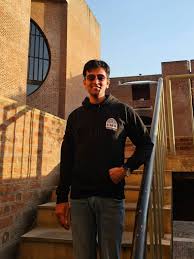When Yugantar Gupta, an MBA student at the prestigious Indian Institute of Management (IIM) Ahmedabad, revealed via LinkedIn that he used ChatGPT to write his marketing project—earning an A+ grade—he didn’t expect to set off a viral conversation on the boundaries of academic effort. His post, which candidly detailed how he combined fieldwork with AI-generated writing, has now become a talking point for educators, technologists, and students across the country.
Rather than just submitting AI-generated content, Gupta visited eight retail stores, gathered real-world insights as a mystery shopper, and then used ChatGPT to compile a polished marketing analysis. The result: a top grade, minimal manual writing, and maximum engagement with ground reality.
Educational Ethics in the Age of AI
While many expected disciplinary action or backlash, Gupta revealed that IIM Ahmedabad does not currently ban AI usage. Tools like ChatGPT are viewed as educational aides—provided they are used to build on original thinking and research.
A professor’s response underscored this shift: “No one will pay you just for writing anymore. What matters now is the thinking and insight behind it.”
This reflects a broader evolution in academic expectations. As AI tools become ubiquitous, the ability to conduct real-world research and synthesize insights has emerged as the new gold standard for evaluation.
From Procrastination to Prompt Engineering
Gupta’s reflection on the experience brings into focus three major takeaways that have resonated with educators and students alike:
- AI can’t replicate original experiences – Fieldwork and real conversations remain irreplaceable.
- Writing isn’t learning – The process of gathering knowledge matters more than drafting it.
- Critical thinking now includes prompt thinking – Knowing what to ask AI is as valuable as knowing what to write.
His actions have exposed the growing tension between effort, efficiency, and authenticity in higher education—forcing institutions to rethink what they truly want students to learn.
Social Media Reacts: Applause, Concerns, and Questions
Responses have been sharply divided. While many praised Gupta for his ingenuity and honesty, others raised concerns about the implications for fairness and academic standards. One user noted: “You didn’t write the report, but you wrote this brilliant post—so clearly, the learning happened.” Another countered: “What’s the future of assessments if AI can generate better content than students?”
Redefining ‘Original Work’ in AI-Era Classrooms
Gupta’s example has highlighted a new paradigm in education. If academic institutions permit AI tools, then originality will be redefined—not just as handwritten effort, but as original input, field insights, and intellectual curiosity.
This episode has prompted institutions across India to explore updated frameworks for:


